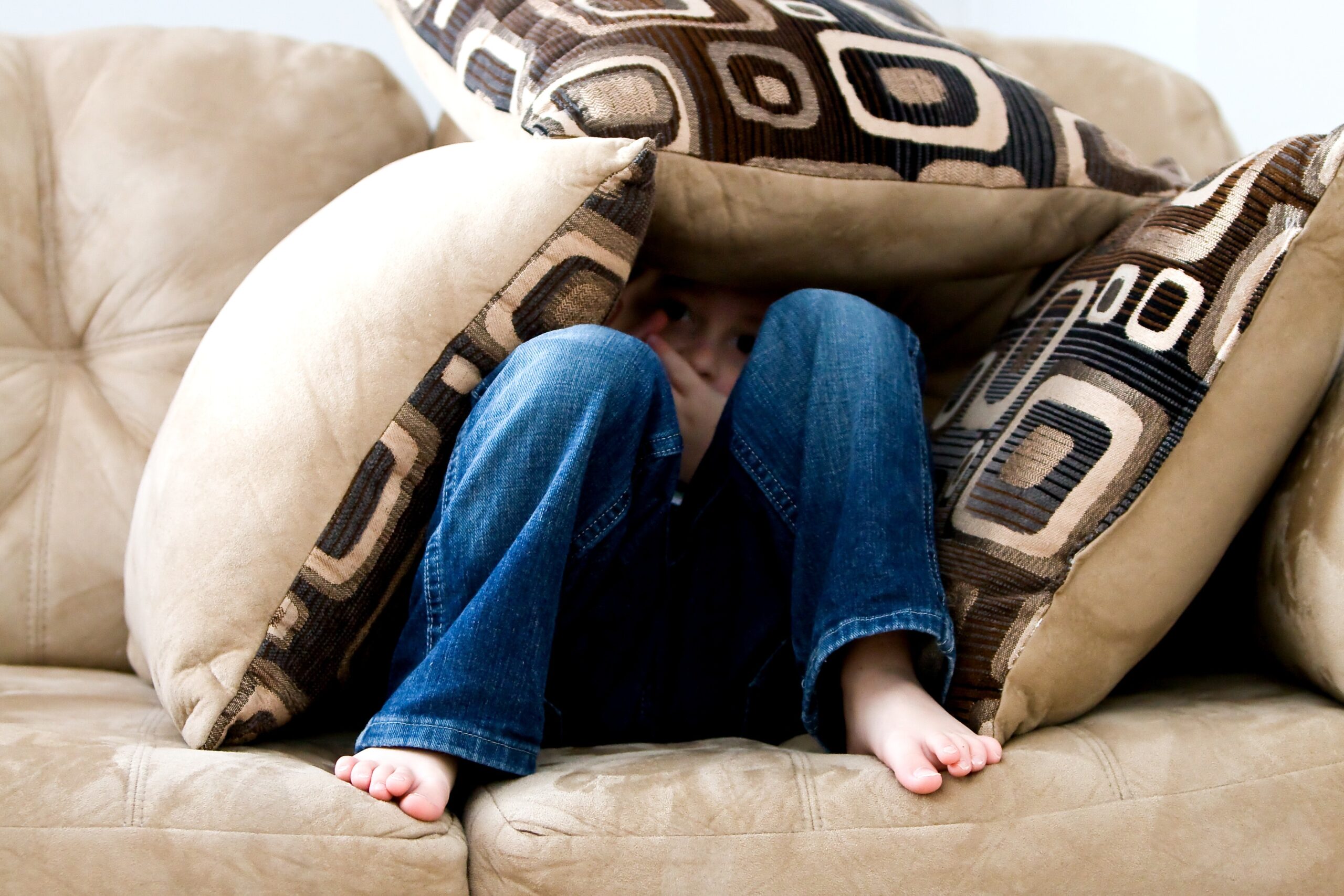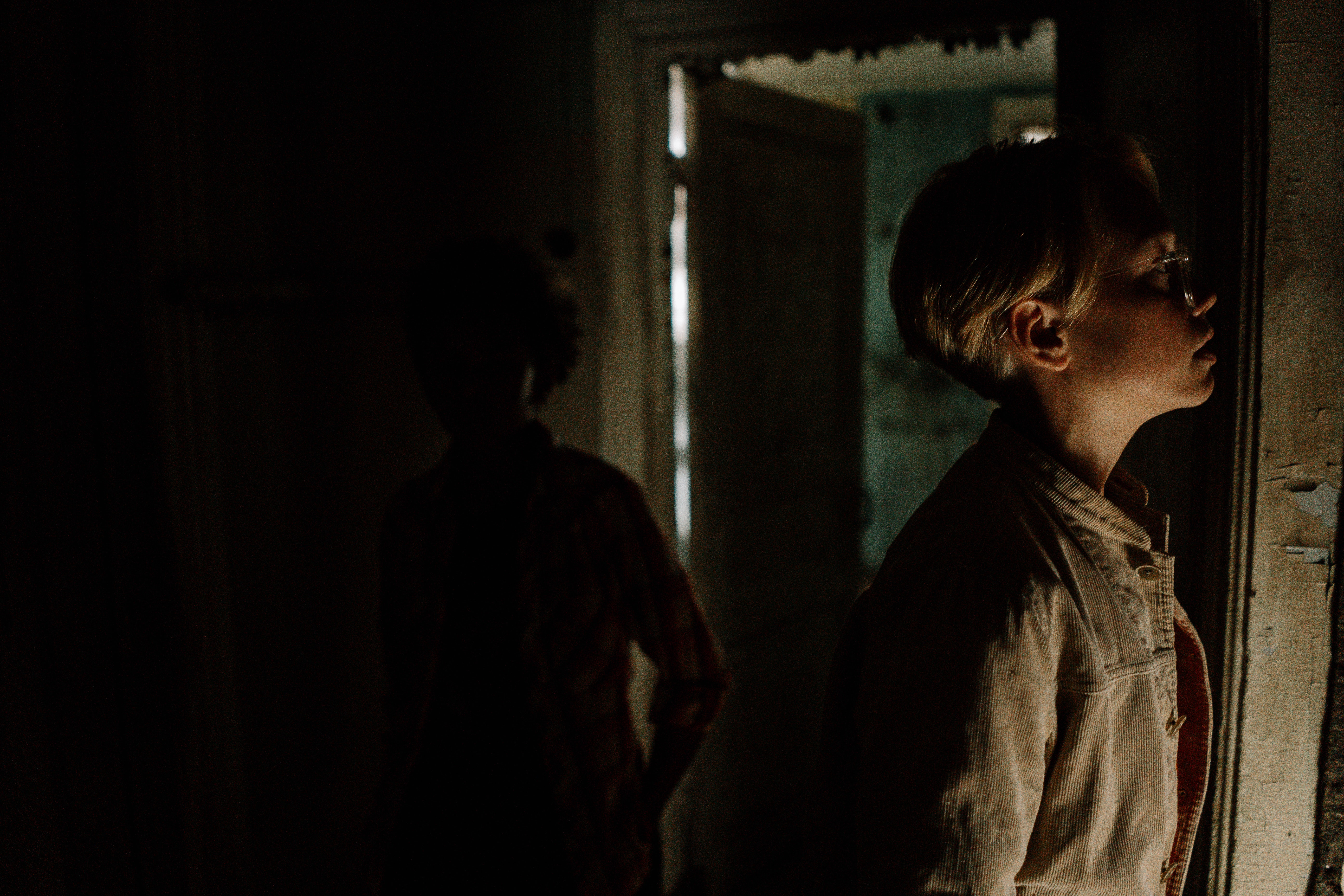Dementophobia is real. In this article, We will be discussing what is dementophobia. How does it feel like having the fear of going insane and how we can overcome this fear.
What is Dementophobia?
Fear of going insane phobia is also known as dementophobia. It originates from the Greek words Dementos to ‘insanity’ and Phobos, which means ‘fear.’
If you have this fear, you are concerned that you will go insane or lose touch with reality. Excessive fear of insanity may lead you to experience intense anxiety at the mere mention of going insane. You may be terrified of becoming insane or of being around insane people. It can affect your social and work life.
The fear of going insane can be linked to concerns about mental diseases in general, including hallucinations, delusions, unreasonable conduct, and other mental illnesses.
What Causes Dementophobia?
A family history of mental illness or prolonged stress may stimulate dementophobia. You may have also witnessed a family member or a relative going into a mental asylum for a mental illness.
Additionally, you may have the genetic disposition for the disorder. You will likely develop dementophobia if your parents already have the mental illness. Experiencing a panic attack, mental breakdown, or hallucination can trigger your underlying fears and make you feel like you are going crazy.
Historically, social stigma and stereotypes have surrounded mental illnesses. People with mental disorders were sent to mental asylums in the past, confined, and given electric shocks as treatment. If you have witnessed anyone in your family meeting such a fate, you have increased odds of developing this fear. The portrayal of violent crimes in movies and books by patients with mental illnesses might worsen dementophobia.
Experiencing trauma in the past, such as child abuse, sexual assault, domestic abuse, parental abandonment, death of a family member, natural calamity, and terrorism can also take a toll on your emotional health and lead you to manifest this phobia of going insane.
Stressful situations can also intensify preconceived ideas about going insane and cause a full-blown fear of insanity. You might think that being insane could result in “crazy” or odd conduct, tics, losing attention, saying weird things, etc., which could make you the target of mockery or social exclusion.
Symptoms and Factors of Dementophobia

Numerous mental and physical health symptoms manifest due to the fear of going insane.
- Merely thinking about the fear of going insane may trigger intense anxiety within you.
- You are highly conscious of your behavior.
- You are paranoid of coming into physical proximity with someone who is insane.
- You are apprehensive and hyper-aware of a slight change in behavior or facial expressions of people around you.
- You are afraid of being sent to a mental asylum.
- You may experience breathlessness and heart palpitations.
- You experience full-blown panic attacks and may become socially withdrawn.
- You frequently feel nauseous, dizzy, and often faint.
- You avoid tasks that require focus and concentration.
Treatment for Dementophobia
How can you overcome the fear of going crazy or insane?
There are no specific treatments for dementophobia, but several ways help you manage the symptoms of and even cure dementophobia.
Psychotherapy
It is also known as talking therapy. It helps patients deal with various mental and emotional distress symptoms. This form of treatment is to assist you in becoming more at ease with your emotions and the stimuli and circumstances that induce them. You are encouraged to confront your fears and deal with anxiety whenever it arrives.
Exposure Therapy
Therapists employ this technique to rid you of your anxieties by breaking the pattern of your fears. It works by gradually exposing you to the stimuli that trigger anxiety in you until your symptoms subside and are eventually eliminated. The therapy aims to desensitize you to your triggers of anxiety.
Your therapist must be highly skilled at their job. You may not become desensitized to your fear if you are only marginally exposed to it. Similarly, more considerable exposure to your fear might worsen your anxiety. For treating dementophobia, your therapist might show you pictures of mentally ill patients.
Antidepressants and Antianxiety Medications
Antidepressants like Zoloft, Lexapro, and Paxil are not only helpful in depression but are also effective in treating symptoms of anxiety and panic attacks in people with dementophobia. Valium, Xonox, and Klonopin are anti-anxiety medications that help deal with panic attacks in severe dementophobia. Make sure to consult with your doctor before taking these medications.
Mindfulness-Based Stress Reduction (MBSR)
Initially designed for stress management, MBSR treats various ailments such as anxiety, depression, chronic pain, hypertension, etc. MBSR is an eight-week, intensive mindfulness program that teaches you how to cultivate awareness of the present moment. It is a highly-structured program where you can learn various skills to minimize intense anxiety linked to your phobia. It is an immensely effective treatment strategy for people with dementophobia.
Mindful Meditation
It is also a beneficial treatment option for people with dementophobia. It helps you distract your mind from your fear and onto something else that does not carry any emotional baggage. For instance, if you are focusing on breathing, redirecting your attention to the various emotions felt during breathing takes your mind off the mental suffering stemming from an influx of anxiety.
You can focus on any of your five senses to significantly reduce anxiety symptoms. Be attentive to the sounds around you, how your food tastes, and how certain fragrances make you feel.
Yoga
Practicing yoga helps you achieve a meditative state of mind, making it a helpful technique for treating dementophobia. It lessens your anxiety by focusing your attention on something more useful. There are various types of yoga, all of which help you reduce anxiety and stress related to dementophobia. You can also achieve greater strength and become more flexible, among other advantages.
Exercise
Anxiety & Depression Association of America (ADAA) states that regular exercise confers anti-anxiety effects. Cardiovascular exercises greatly help in stress relief, and aerobic exercise is beneficial in inducing endorphin release.
If you do not have an active lifestyle, you should try to engage in exercises to manage symptoms of anxiety and stress related to dementophobia effectively. Playing sports like racquetball, basketball, soccer, and tennis, and swimming, jogging, walking, and biking also help ease the symptoms of dementophobia.
Cognitive Behavioral Therapy (CBT)
CBT is a psychotherapeutic treatment that aims to help you recognize and alter damaging and disturbing thought patterns that adversely affect your behavior and emotions. It is frequently used to treat general anxiety disorder (GAD) and obsessive-compulsive disorder (OCD). It helps you understand why you believe and act the way you do when facing your irrational fears. CBT enables you to examine your anxieties more thoroughly.
Dialectical Behavioral Therapy (DBT)
It is a modified form of CBT. Its main objectives are to teach you how to be present, create healthy coping mechanisms for stress, control your emotions, and enhance interpersonal connections. It was initially designed to treat people with Borderline Personality Disorder (BPD), but it is also helpful for treating dementophobia.
One of the coping mechanisms employed in DBT is called ‘half-smiling.’ Half-smiling requires you to think about your fear while slightly raising the corners of your mouth. You are also supposed to avoid immersing in the unpleasant thoughts your fear arose.
DBT also extensively uses mindful meditation, which is practiced in a group context and helps you step out of your comfort zone.
Coping ahead is another DBT technique where you locate a calm space, sit down and imagine all the circumstances where you could confront your particular phobia and cope with it. This technique enables you to manage your fear better when encountering it in real life.
Build a Support Group
Finding out more people in the world experiencing the same fears as you can feel therapeutic. Being able to talk to other people about your worries can feel relieving. You can find people online and offline. You can create a safe space, talk about your fears, and provide and receive validation for your emotions. Connecting with others and sharing your stories might drastically alter how you experience these uncomfortable sensations.
What Going Crazy Feels in Different Anxiety Disorders

According to the Anxiety and Depression Association of America (ADAA), 40 million adults suffer from anxiety disorders in the US. The coexistence of dementophobia with anxiety disorders can worsen your mental and emotional health.
Obsessive-Compulsive Disorder (OCD)
When you have dementophobia in conjunction with OCD, you believe your mind controls your behavior. Due to the highly difficult-to-stop obsessive and compulsive behaviors associated with OCD, you have a sense of losing control over their lives and reality. You can’t help yourself and continue to do your routine work even when you are aware that some of your acts are nonsensical, which adds to the sensations of unreality.
Panic Disorder
When you have depersonalization and derealization disorder (DPDR), you experience the sensation of watching yourself from outside your body. DPDR also gives you the impression that the world around you is not real. These are personal changes in perceptions and are prevalent during panic episodes and periods of significant stress. This could give you the impression that you’re losing your mind, which would start a vicious cycle.
Post-Traumatic Stress Disorder (PTSD)
Post-traumatic stress disorder (PTSD) is a mental health illness that can be brought on by experiencing or witnessing a horrific event. Symptoms of PTSD include flashbacks to the traumatic event, nightmares, anxiety, and uncontrollable thoughts about the incident. The symptoms of severe PTSD can cause those who experience them to feel as though they are going insane.
The Ending Note
The phobia of going crazy can potentially drive you crazy, especially when coexisting with other anxiety disorders and left untreated. Fortunately, it is manageable and curable with existing therapeutic strategies. So, you do not have to live with it for life or try to evade it. Building and joining a support network is just as important as any other treatment plan. Knowing other people are also experiencing dementophobia should provide you with the necessary solace. Sharing about your experience and gaining insights into others’ journeys should make your path down getting better easier.
FAQs
Can you really go crazy?
Suffering from a traumatic event – the death of a loved one, divorce, rape, domestic abuse, terrorism, natural disaster – can make people go insane. Some of the after-effects of facing these traumatic events include anxiety, depression, social withdrawal, intense fear about the event recurring, stress, and post-traumatic stress disorder (PTSD). People with these ailments require immense emotional and psychological support. If these symptoms are left untreated, they can worsen and cause a sane person to go crazy. Dementophobia can also make one go insane if no form of support is provided to the affected person.
Is it normal to worry about going crazy?
It is normal to worry about going crazy as long as you can carry on with your everyday life and it does not impair your wellbeing. But when your fears are no longer in your control and occupy most of your time, it is time to seek professional help. Fluctuating anxiety levels or specific life experiences can occasionally cause you to worry that you might lose your mind. It does you no harm and won’t make you go insane.
Can I go crazy from anxiety?
When you’re experiencing high levels of anxiety, you can feel like you’re going crazy even though you are not. A common symptom of anxiety is feelings of detachment from reality. People experience depersonalization and derealization disorder (DPDR), making them feel like they can see themselves outside their bodies. These symptoms are all connected to how emotional stress affects our bodies. It is crucial to understand that these sensations are just that—sensations. They are entirely harmless. These emotions can overwhelm some people, causing them to begin hyperventilating, occasionally resulting in “out of body” experiences or a sense of detachment. Feeling these sensations does not mean that you are going crazy from anxiety.
Why you might feel like you are going crazy?
Social isolation tends to make people feel like they are going crazy. If you are used to interacting with people, a lack of social connection can be unbearable for you. If you have lost a close friend, spouse, or partner, these emotions may surface. With your close friend or partner no longer standing beside you, your brain can make you feel ‘unreal.’
You might be suffering from other phobias such as agoraphobia and enochlophobia – fear of places or crowds, respectively – that can aggravate your fear of going insane.
Prolonged stress and its repercussions on emotional and physical health also make people feel like they are going crazy.

